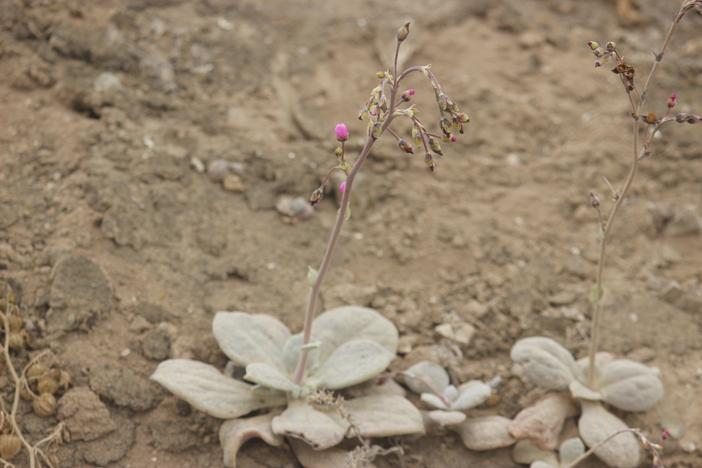Jewels Of Opar
(Cistanthe paniculata)
Jewels Of Opar (Cistanthe paniculata)
/
/

Ruth Gutiérrez Oliveros
CC0 1.0
Image By:
Ruth Gutiérrez Oliveros
Recorded By:
Copyright:
CC0 1.0
Copyright Notice:
Photo by: Ruth Gutiérrez Oliveros | License Type: CC0 1.0 | License URL: http://creativecommons.org/publicdomain/zero/1.0/ | Occurence ID: https://www.gbif.org/occurrence/4904161585 | Publisher: Inaturalist |




Estimated Native Range
Summary
Cistanthe paniculata, commonly known as Jewels of Opar, is a versatile plant that can be evergreen, semi-deciduous, or deciduous, depending on the climate. It is a perennial subshrub or herb native to Peru. This plant typically grows to a height of 1-3 feet (0.3-0.9 meters) and a width of about 1 foot (0.3 meters). It has a sprawling form with succulent stems and leaves, and it produces small, delicate pink flowers in loose panicles throughout the warm season, which can add a touch of whimsy to garden settings.
Jewels of Opar is valued for its drought tolerance and the contrast between its bright green foliage and pink flowers. It is often used in xeriscaping, rock gardens, and as a border plant. It thrives in full sun to part shade and prefers well-drained soils. While it tolerates a range of soil types, it performs best in soils with medium drainage. This plant is relatively low-maintenance, but it can self-seed prolifically, which might be considered invasive in some areas. It is also known for its medicinal uses in traditional practices.CC BY-SA 4.0
Jewels of Opar is valued for its drought tolerance and the contrast between its bright green foliage and pink flowers. It is often used in xeriscaping, rock gardens, and as a border plant. It thrives in full sun to part shade and prefers well-drained soils. While it tolerates a range of soil types, it performs best in soils with medium drainage. This plant is relatively low-maintenance, but it can self-seed prolifically, which might be considered invasive in some areas. It is also known for its medicinal uses in traditional practices.CC BY-SA 4.0
Plant Description
- Plant Type: Subshrub, Herb
- Height: 1-3 feet
- Width: 0.333-1 feet
- Growth Rate: Moderate
- Flower Color: Pink
- Flowering Season: Summer
- Leaf Retention: Deciduous
Growth Requirements
- Sun: Full Sun, Part Shade
- Water: Low, Medium
- Drainage: Medium
Common Uses
Drought Tolerant, Low Maintenance, Rock Garden
Natural Habitat
Native to Central America and the Caribbean
Other Names
Common Names:
Scientific Names: , Cistanthe paniculata, Calandrinia paniculata, Calandrinia adenosperma, Calandrinia ruizii, Calandrinia crenata, Portulaca carnosa, Talinum crenatum, Talinum polyandrum,
GBIF Accepted Name: Cistanthe paniculata (Ruiz & Pav.) Carolin ex Hershk.